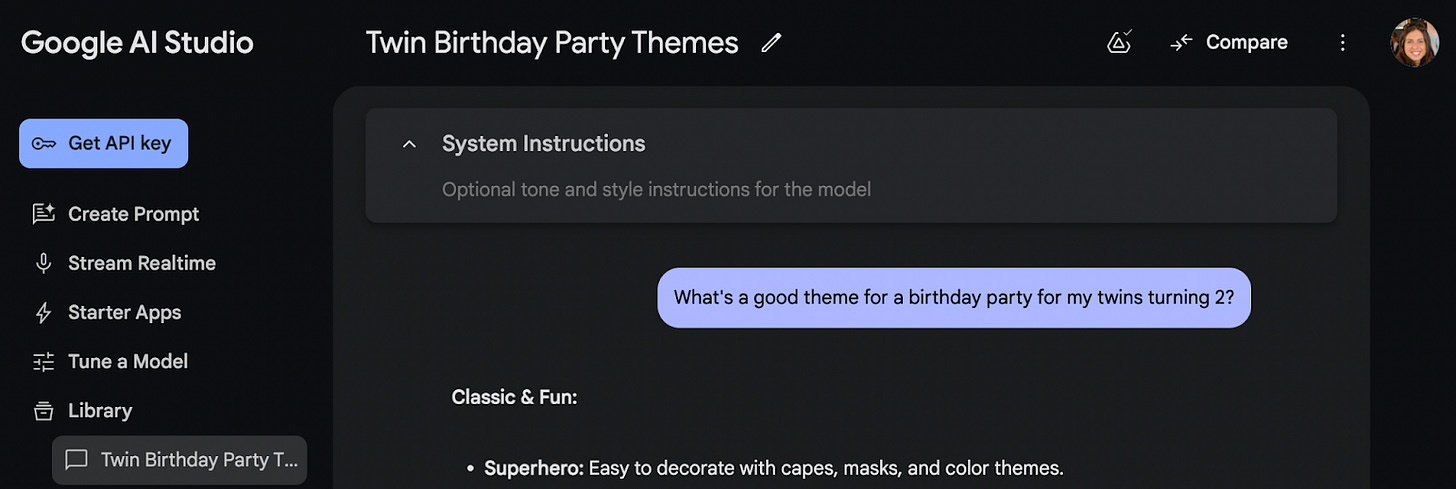Drowning in "Untitled": Can Generative AI Save Us From Digital Repetition?
From Outlook's once clunky folders to today's AI-powered tools, file naming is still a UX nightmare. Here's why it matters, and how to fix it.
Ever experienced the sheer frustration of staring at a screen full of files named "Untitled"? I have, and it's a digital papercut that slashes surprisingly deep. My obsession with this seemingly trivial issue started back in my days as a Product Manager at Microsoft, working on Outlook.
We were flooded with feedback from users who hated that their folders were always alphabetically arranged. They wanted control! The creative workarounds users came up with were brilliant (and a little sad): adding periods (".Family Emails") or numbers ("1 Zoe's School") to force important folders to the top. We finally shipped a drag-and-drop feature to allow reordering. It was a game-changer. And it's probably why I've been hyper-aware of file naming and its user experience (UX) ever since.
File Naming: A Surprisingly Big Deal in the Age of Generative AI
Fast forward to today. You'd think we'd have solved this, right? Nope. It's a UX hill on which I'm still willing to die, especially now that Gen AI is here. This is exactly the kind of everyday friction that AI should eliminate.
I've been testing a lot of early AI product prototypes recently. While I understand that perfect polish isn't the top priority on day one, the absence of good file naming is jarring. My bar for "baseline expectations" has been raised.
The "Untitled" Abyss
Here's my core belief: I should never see a screen full of ambiguously default named files. That can’t be too much to ask for in the 21st century.
Generative AI is the perfect solution. Google AI Studio gets it. Start a new prompt, and bam – an instant, content-aware title.
ChatGPT, Gemini, Claude – they're all on board with this auto-naming revolution.
Gmail earns an honorable mention. Its title generation starts when you click into the subject line, and it's usually spot-on.
Then there's the "good effort, but could be better" category. Google Docs auto-generates titles, but with two key UX problems:
You must click into the title field first.
It just grabs the first few words of your document.
Sometimes it works:
But other times…not so much:
Because of that extra click, I often still end up with this:
Let's talk about Notion. New document? You get "New page."
But if you just start typing, "New page" is what sticks. I expected clicking into that area would trigger a content-aware title suggestion. It didn't. This was surprising, given how slick Notion's AI editing features are. Missed opportunity!
Autosave: Friend and Foe
Autosave is a lifesaver. It's a feature I've completely taken for granted. Its absence is painful. Autosave and auto-naming are two sides of the same coin. Autosaving a sea of "Untitled" files? Digital chaos.
iMovie gets points for letting you start a project without naming it.
But then, when you navigate back to your project list, you're ambushed with a title prompt. And the default title? Generic. Generative AI could easily create a personalized default title.
The Data Deluge: Are We Drowning in Information?
Here's the twist. As much as I love autosave, it's fueling a potential monster: data overload.
Browsing my (auto)saved AI Studio prompts, I often see this:
Are we heading towards a "too much data" dystopia? Generative AI lowers content creation costs, but could quality suffer? Do we need to save everything?
I was chatting with someone struggling with Claude's context limits. Starting a new conversation thread meant losing valuable context. The challenge? Figuring out which parts of the old conversation were important enough to carry forward. "Memory" – the AI feature – could be the answer. ChatGPT and Gemini already have versions of this.
Maybe it's okay to drown in data if AI can filter out the noise. But what about us? Semantic search becomes our only hope! I'm constantly using vague search queries, hoping for a miracle. Sometimes it works. Often, it doesn't. Then it's a deep dive into digital purgatory, sifting through endless files, most of which I'll never delete (I have over 10,000 emails – I'm part of the problem!).
The Future is Auto-Named (and Less Cluttered, Hopefully)
Generative AI isn't just about writing poems and code. It's about smoothing out everyday digital frustrations. Auto-naming files is a small thing. But it's a sign of a more thoughtful, user-centric future. It's about technology anticipating our needs and quietly sweating the small stuff. In a world about to be flooded with even more content, that kind of intelligent polish isn't just nice-to-have – it's essential.












